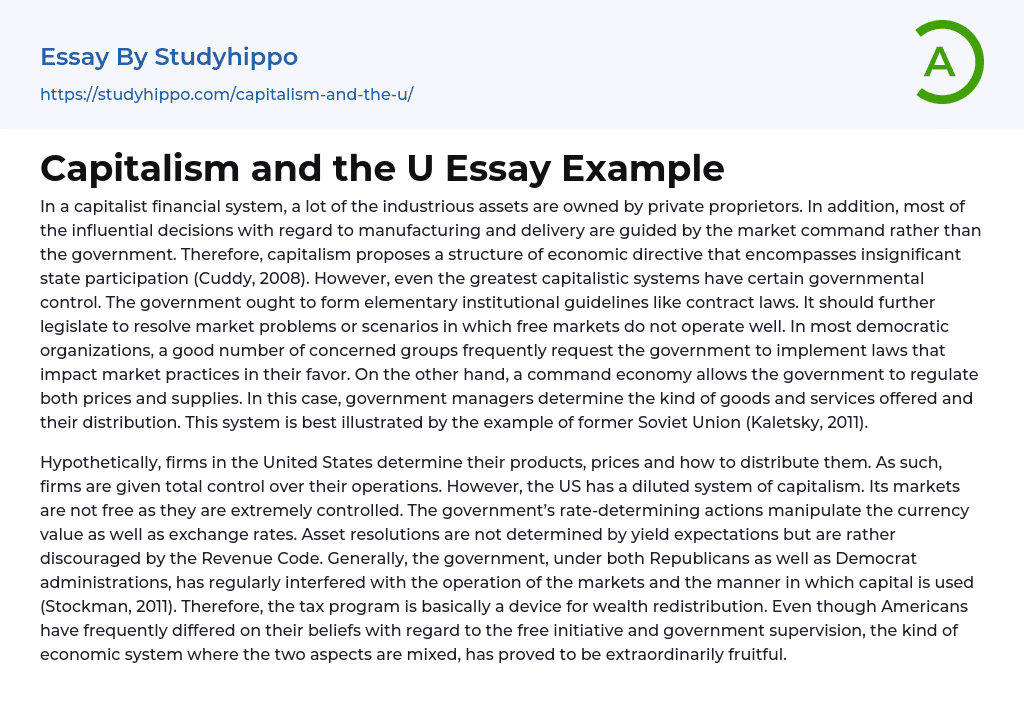In a capitalist financial system, private proprietors own many of the industrious assets. Furthermore, market command rather than the government drives most influential decisions regarding manufacturing and delivery. Hence, capitalism suggests an economic directive structure that includes minimal state participation (Cuddy, 2008).
Despite the presence of governmental control in even the most prominent capitalist systems, the government still plays a crucial role. It is responsible for establishing basic institutional rules, such as contract laws, and enacting legislation to address market issues or situations where free markets fall short. In democratic societies, various interest groups often advocate for laws that benefit their market practices. Conversely, in a command economy, the government regulates both prices and supplies.
In government-managed economies, goods and services availability and distribution are determined by government managers,
...as shown in the former Soviet Union (Kaletsky, 2011). Conversely, the United States operates under a system where companies have the freedom to make decisions about their products, prices, and distribution methods. This grants firms complete control over their operations. It is noteworthy that the US has a somewhat diluted form of capitalism.
In this country, the markets are subject to strict regulations and the government plays a crucial role in determining currency value and exchange rates. The government's actions, regardless of political party in power, consistently interfere with market operations and capital usage. The Revenue Code discourages asset resolutions based on yield expectations. Essentially, the tax program serves as a means for wealth redistribution.
Although Americans often have conflicting opinions on free initiative and government supervision, the fusion of these elements in an economic system has shown remarkable productivity.
- American Dream essays
- Barriers To Entry essays
- Capitalism essays
- Central Bank essays
- Compensation essays
- Consumerism essays
- Economic Development essays
- Economic Growth essays
- Economic Inequality essays
- Economic System essays
- Economy essays
- Employment essays
- Export essays
- Finance essays
- Free Trade essays
- Gross Domestic Product essays
- Human Development essays
- Income Inequality essays
- Industry essays
- Inflation essays
- International Business essays
- International Trade essays
- Macroeconomics essays
- Materialism essays
- Max Weber essays
- Microeconomics essays
- Minimum Wage essays
- Monetary Policy essays
- Monopoly essays
- Pricing essays
- Profit essays
- Recession essays
- resources essays
- Taxation essays
- Trade essays
- Unemployment essays
- Warehouse essays
- World economy essays
- Activism essays
- Communism essays
- Conservatism essays
- Liberalism essays
- Marxism essays
- Nationalism essays
- Patriotism essays
- Policy essays
- Public Policy essays
- Social Contract essays
- Socialism essays
- Totalitarianism essays




